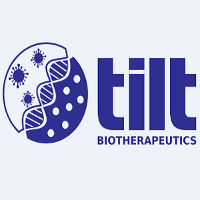预约演示
更新于:2025-06-28
TILT-234
更新于:2025-06-28
概要
基本信息
非在研机构- |
权益机构- |
最高研发阶段临床前 |
首次获批日期- |
最高研发阶段(中国)- |
特殊审评- |
关联
100 项与 TILT-234 相关的临床结果
登录后查看更多信息
100 项与 TILT-234 相关的转化医学
登录后查看更多信息
100 项与 TILT-234 相关的专利(医药)
登录后查看更多信息
3
项与 TILT-234 相关的文献(医药)2021-02-01·Human gene therapy2区 · 医学
Oncolytic Adenovirus Type 3 Coding for CD40L Facilitates Dendritic Cell Therapy of Prostate Cancer in Humanized Mice and Patient Samples
2区 · 医学
Article
作者: Santos, Joao ; Zafar, Sadia ; Hemminki, Akseli ; Rannikko, Antti ; Hemminki, Otto ; Havunen, Riikka ; Kalliokoski, Riikka ; Basnet, Saru ; Quixabeira, Dafne Carolina Alves ; Mirtti, Tuomas ; Kanerva, Anna ; Cervera-Carrascon, Victor ; Malmstedt, Minna ; Matikainen, Mika ; Aronen, Pasi ; Launonen, Inga-Maria
Dendritic cell (DC)-based vaccines have shown some degree of success for the treatment of prostate cancer (PC). However, the highly immunosuppressive tumor microenvironment leads to DC dysfunction, which has limited the effectiveness of these vaccines. We hypothesized that use of a fully serotype 3 oncolytic adenovirus (Ad3-hTERT-CMV-hCD40L; TILT-234) could stimulate DCs in the prostate tumor microenvironment by expressing CD40L. Activated DCs would then activate cytotoxic T cells against the tumor, resulting in therapeutic immune responses. Oncolytic cell killing due to cancer cell-specific virus replication adds to antitumor effects but also enhances the immunological effect by releasing tumor epitopes for sampling by DC, in the presence of danger signals. In this study, we evaluated the companion effect of Ad3-hTERT-CMV-hCD40L and DC-therapy in a humanized mouse model and PC histocultures. Treatment with Ad3-hTERT-CMV-hCD40L and DC resulted in enhanced antitumor responses in vivo. Treatment of established histocultures with Ad3-hTERT-CMV-hCD40L induced DC maturation and notable increase in proinflammatory cytokines. In conclusion, Ad3-hTERT-CMV-hCD40L is able to modulate an immunosuppressive prostate tumor microenvironment and improve the effectiveness of DC vaccination in PC models and patient histocultures, setting the stage for clinical translation.
2018-10-03·Oncoimmunology2区 · 医学
CD40L coding oncolytic adenovirus allows long-term survival of humanized mice receiving dendritic cell therapy
2区 · 医学
ArticleOA
作者: Havunen, Riikka ; Hemminki, Otto ; Siurala, Mikko ; Lieber, Andre ; De Gruijl, Tanja ; Cervera-Carrascon, Victor ; Hemminki, Akseli ; Zafar, Sadia ; Kanerva, Anna ; Sorsa, Suvi ; Wang, Hongjie ; Santos, João Manuel
Dendritic cells (DCs) are crucial players in promoting immune responses. Logically, adoptive DC therapy is a promising approach in cancer immunotherapy. One of the major obstacles in cancer immunotherapy in general is the immunosuppressive tumor microenvironment, which hampers the maturation and activation of DCs. Therefore, human clinical outcomes with DC therapy alone have been disappointing. In this study, we use fully serotype 3 oncolytic adenovirus Ad3-hTERT-CMV-hCD40L, expressing human CD40L, to modulate the tumor microenvironment with subsequently improved function of DCs. We evaluated the synergistic effects of Ad3-hTERT-CMV-hCD40L and DCs in the presence of human peripheral blood mononuclear cells ex vivo and in vivo. Tumors treated with Ad3-hTERT-CMV-hCD40L and DCs featured greater antitumor effect compared with unarmed virus or either treatment alone. 100% of humanized mice survived to the end of the experiment, while mice in all other groups died by day 88. Moreover, adenovirally-delivered CD40L induced activation of DCs, leading to induction of Th1 immune responses. These results support clinical trials with Ad3-hTERT-CMV-hCD40L in patients receiving DC therapy.
2017-02-01·Oncoimmunology2区 · 医学
Intravenously usable fully serotype 3 oncolytic adenovirus coding for CD40L as an enabler of dendritic cell therapy
2区 · 医学
ArticleOA
作者: Havunen, Riikka ; Parviainen, Suvi ; de Gruijl, Tanja ; Tähtinen, Siri ; Lieber, Andre ; Zafar, Sadia ; Bramante, Simona ; Hemminki, Akseli ; Wang, Hongjie ; Hemmi, Silvio ; Vassilev, Lotta ; Hemminki, Otto ; Siurala, Mikko ; Kanerva, Anna
Vaccination with dendritic cells (DCs), the most potent professional antigen-presenting cells in the body, is a promising approach in cancer immunotherapy. However, tumors induce immunosuppression in their microenvironment that suppresses and impairs the function of DCs. Therefore, human clinical trials with DC therapy have often been disappointing. To improve the therapeutic efficacy and to overcome the major obstacles of DC therapy, we generated a novel adenovirus, Ad3-hTERT-CMV-hCD40L, which is fully serotype 3 and expresses hCD40L for induction of antitumor immune response. The specific aim is to enhance DCs function. Data from a human cancer patient indicated that this capsid allows effective transduction of distant tumors through the intravenous route. Moreover, patient data suggested that virally produced hCD40L can activate DCs in situ. The virus was efficient in vitro and had potent antitumor activity in vivo. In a syngeneic model, tumors treated with Ad5/3-CMV-mCD40L virus plus DCs elicited greater antitumor effect as compared with either treatment alone. Moreover, virally coded CD40L induced activation of DCs, which in turn, lead to the induction of a Th1 immune response and increased tumor-specific T cells. In conclusion, Ad3-hTERT-CMV-hCD40L is promising for translation into human trials. In particular, this virus could enable successful dendritic cell therapy in cancer patients.
100 项与 TILT-234 相关的药物交易
登录后查看更多信息
研发状态
10 条进展最快的记录, 后查看更多信息
登录
| 适应症 | 最高研发状态 | 国家/地区 | 公司 | 日期 |
|---|---|---|---|---|
| 实体瘤 | 临床前 | 芬兰 | - |
登录后查看更多信息
临床结果
临床结果
适应症
分期
评价
查看全部结果
| 研究 | 分期 | 人群特征 | 评价人数 | 分组 | 结果 | 评价 | 发布日期 |
|---|
No Data | |||||||
登录后查看更多信息
转化医学
使用我们的转化医学数据加速您的研究。
登录
或

药物交易
使用我们的药物交易数据加速您的研究。
登录
或

核心专利
使用我们的核心专利数据促进您的研究。
登录
或

临床分析
紧跟全球注册中心的最新临床试验。
登录
或

批准
利用最新的监管批准信息加速您的研究。
登录
或

特殊审评
只需点击几下即可了解关键药物信息。
登录
或

Eureka LS:
全新生物医药AI Agent 覆盖科研全链路,让突破性发现快人一步
立即开始免费试用!
智慧芽新药情报库是智慧芽专为生命科学人士构建的基于AI的创新药情报平台,助您全方位提升您的研发与决策效率。
立即开始数据试用!
智慧芽新药库数据也通过智慧芽数据服务平台,以API或者数据包形式对外开放,助您更加充分利用智慧芽新药情报信息。
生物序列数据库
生物药研发创新
免费使用
化学结构数据库
小分子化药研发创新
免费使用
